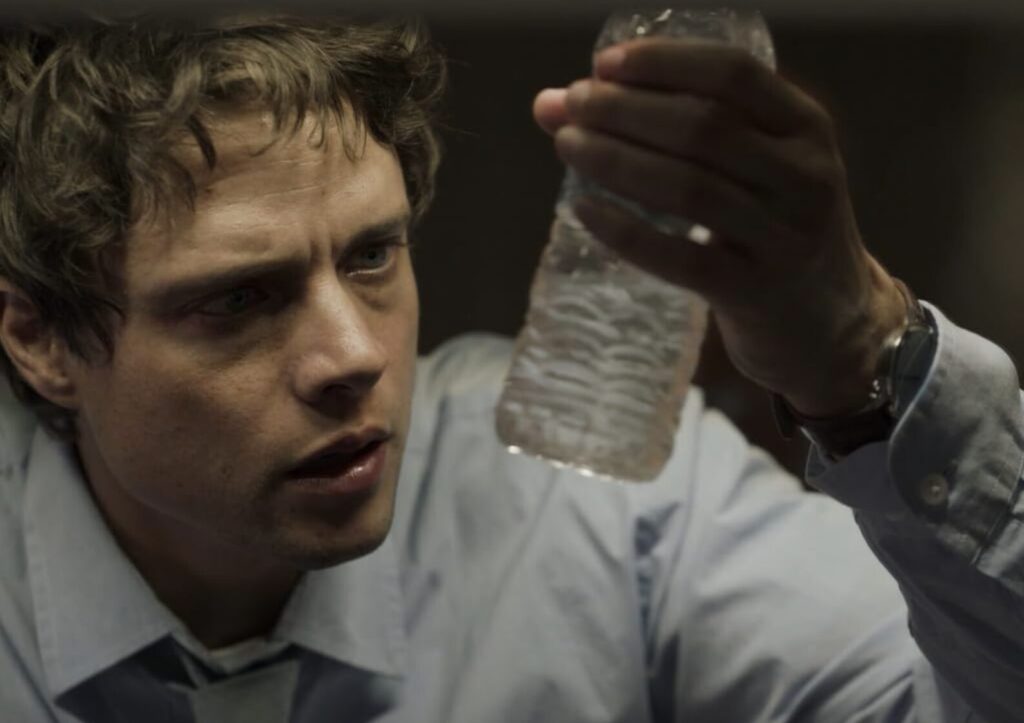“Exposure” Explores the Horror of OCD

When most people think of Obsessive Compulsive Disorder, they imagine constant cleaning, tapping doorknobs, and endless checking that the stove is off. But for those of us who suffer from the condition, we know it can be a different beast altogether. The mental illness is characterized by intrusive thoughts or fears that spark uncontrollable soothing behavior. Though handwashing and checking are certainly common, anything from exercise, skin-picking, hoarding, and seeking reassurance can manifest as a compulsive act that provides relief. It may sound fairly benign, but the reality of OCD can feel like a relentless nightmare. The lines between reality begin to blur and whole days can be lost to endless repetition. Peter Cannon’s Exposure pulls us into this world by following a man teetering on the edge. This sensitive, but harrowing film brilliantly exposes the brutal reality of OCD while revealing a world in which recovery is possible.
Cannon opens the film with a horrific crime. Tanner (Douglas Smith) has been abducted and fed rat poison by a mysterious man now setting him free. Fast-forwarding several years, we see that this traumatic event still dominates Tanner’s life. Not only is he terrified the attacker will return, he’s hypervigilant about food and convinced he will be poisoned again. Frustrated and unsure how to help, his wife Nicole (Margo Harshman) convinces him to attend a support group for people with intrusive obsessions. Though resistant at first, Tanner finally begins to explore the process of exposure therapy and creates a list of escalating challenges. With the help of the group and its inspirational leader Pat (Kevin McCorkle), Tanner slowly begins to work through his trauma. But a chance encounter with the man who attacked him reveals a web of secrets at the heart of his fragile recovery.
For those with OCD, Exposure feels like a breath of fresh air. We’ve seen our mental illness transformed into a description of neatness and organization and Cannon’s film reveals the painful truth. Tanner suffers from the intrusive belief that someone will break into his home and poison his food. And these unwanted fears are destroying his life. Not only is he unable to work, but expensive placebos and urgent care trips are straining his already thin budget. Cannon presents Tanner’s paranoia as reality and allows us to spend time inside his tortured mind. Delusions and flashbacks feel achingly real and quick cuts to the resulting compulsions provide a cinematic link between cause and effect. Before we can fully grasp what’s going on, we’ve fallen into Tanner’s exaggerated response and, like him, we feel desperate for relief. Smith delivers a nuanced performance allowing us to empathize with Tanner while fearing the lasting damage and real life harm that may come from his uncontrollable behavior.
Though responses to Pat’s method of exposure therapy may vary, the experience of support group culture feels refreshingly real. Cannon wisely avoids going too deep into the clinical elements of this treatment modality, but focuses mostly on the satisfaction of personal growth and the strength of community. Meeting in a church basement, these disparate people may have little in common, but find connection over their shared pain. Veteran members of real life groups likely remember newcomers like Tanner who believe that no one will understand their pain. Watching him slowly realize he is not alone, may be the most satisfying element in this powerful film.
Cannon also explores the cost of caregiving. Nicole promises to take care of Tanner no matter what and sacrifices her own happiness to manage his emotions. Everything takes a backseat to mental illness and she walks on eggshells to avoid her husband’s many triggers. Partners of those with OCD will also feel seen as Nicole struggles to hold onto her marriage. Is she obligated to stay with him through the worst of his pain and what kind of a person would be tempted to leave? Harshman’s performance is equally powerful and gives voice to a reality few people see. This dedicated wife just wants to do the right thing and Cannon explores the relationship without casting blame.
Exposure is an unnerving psychological thriller with many twists and turns leading to a harrowing climax. But more than an entertaining film, it’s an important story that brings the reality of OCD into the light. Cannon does not provide easy answers, but rather reveals the hard work and dedication it takes to recover. A surprising conclusion feels both heartbreaking and hopeful as Tanner finally finds what he truly needs. For those of us who struggle with intrusive obsessions, this poignant story of growth through pain allows us to believe there may be light on the other side of a long and frightening road. Exposure not only honors the experience of living with OCD, it gives us a reason to keep moving forward.
Jenn Adams is a writer, podcaster, and film critic from Nashville, TN. Find her social media nonsense @jennferatu.